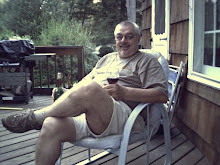By John Wagner
Washington Post Staff Writer
Saturday, January 31, 2009; Page A06
Republicans yesterday elected former Maryland lieutenant governor Michael S. Steele to lead their party, selecting the GOP's first black national chairman. The outcome also signaled a clear break from the leadership of President George W. Bush, whose hand-picked party chief was among those Steele defeated for the post.
With their party in disarray and seeking a new direction after consecutive electoral defeats, members of the Republican National Committee turned to Steele, who promised in his campaign for the post to help the GOP improve upon its dismal showing among black and Latino voters last fall. The D.C.-raised Steele excited many Republicans as a potential public counterweight to President Obama and a man who could help reframe the way voters view "the party of Lincoln," as he called it.
Marylander Michael S. Steele's election yesterday as chairman of the Republican National Committee capped an improbable political journey for a onetime seminarian that began in an even more improbable place.

Related Articles to this Story
- Unlikely Path Led to RNC's Summit
- Michael Steele Reacts to His Election
- The Fix: Steele Elected RNC Chair
Amid a series of abandoned careers in the church, law and business, Steele began toiling in GOP politics in the early 1990s in Prince George's County, a heavily African American jurisdiction where registered Democrats outnumber Republicans more than 8 to 1.
Powered by charisma, charm and an extraordinary handshake, and undaunted by long odds, Steele ascended to chairman of the beleaguered county GOP, then to chairman of the Maryland Republican Party, before being chosen to run for lieutenant governor in 2002 on the ticket of then-Rep. Robert L. Ehrlich Jr.
Ehrlich's election as Maryland's first Republican governor in a generation provided a springboard for Steele to get national attention at a time when his party was seeking to reach out to minorities. He was given a prominent speaking role at the 2004 national convention.
But hopes of realigning Maryland politics were dashed four years later, when "L.G.," as Ehrlich commonly called his highly visible lieutenant governor, branched out on his own and was solidly defeated in a U.S. Senate bid. Steele received ample help from party leaders in Washington but said little about his party affiliation at home.
Steele's only other solo attempt at statewide office, for the more obscure job of comptroller in 1998, also ended in defeat, with a third-place finish in the GOP primary.
Still a favorite among party activists nationally, Steele regrouped quickly after his Senate defeat, taking the reins of GOPAC, a group that recruits candidates nationally and that has provided a platform for his oratory for the past two years. Steele's bid for RNC chairman, in the view of most analysts, was further bolstered by the nation's election of its first African American president.
"This is an era of improbability, and Michael Steele emerged at the right time and the right place," said Ronald Walters, a professor of government and politics at the University of Maryland.
Steele's roots are in the District, a fact he alluded to yesterday when addressing the party activists who had elected him. "As a little boy growing up in this town, this is awesome," Steele said.
He was born at Andrews Air Force Base but adopted through a Catholic charity and raised in the Petworth neighborhood of Northwest Washington. Both Steele's mother and stepfather were Democrats, and the Catholic Church was central to his upbringing. In 1977, Steele entered Johns Hopkins University, where he became student government president.
After college, Steele moved to a Catholic seminary. He later joined a handful of other "novices" at an old house in Lawrence, Mass. The program was supposed to last a year, but Steele left after six months, in February 1983.
After giving up a possible career in the church, Steele chose law. He was a paralegal, a law student at Georgetown and then a lawyer from 1991 to 1998, working for a D.C. law office and then for real estate giant Mills Corp. During that time, Steele moved his family -- it now includes his wife, Andrea, and two sons -- to Largo. There, he began his ascent through the party.

No comments:
Post a Comment